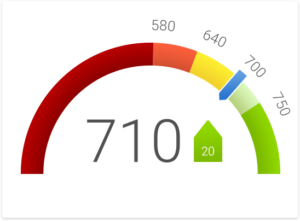Dear Liz: Can you please explain to me why the IRS allows an employee in a workplace 401(k) to contribute $19,000 but a wage earner without a 401(k) can contribute only $6,000 to an IRA? This seems grossly unfair. Why does one group get to save three times as much for retirement?
Answer: Congress works in mysterious ways, and this is far from the only weird byproduct of tax law.
The 401(k) and the IRA were created through different mechanisms.
The 401(k)’s birth was almost accidental. Benefits consultant Ted Benna created the first 401(k) savings plan in 1981, using a creative interpretation of a section of IRS code. Benna crafted the plan to provide an alternative to cash bonuses, not to replace traditional pensions — although that’s what it ended up doing.
IRAs, by contrast, were created deliberately by Congress in 1974 to provide a way for people to save independent of their employers.
Raising the IRA limit would be costly to the budget, while decreasing 401(k) limits would be unpopular, since so many people rely on them for the bulk of their retirement savings.
You aren’t, however, limited to saving only $6,000 annually for retirement. You can always save more in a taxable account. You wouldn’t get the tax deduction for contributions, but your investments can qualify for favorable long-term capital gains treatment if you hold them for at least one year.
 Today’s top story: How to budget for a family trip to Disney. Also in the news: How to cancel an extended car warranty, investment strategies for 2019, and 5 credit card trends to watch in 2019.
Today’s top story: How to budget for a family trip to Disney. Also in the news: How to cancel an extended car warranty, investment strategies for 2019, and 5 credit card trends to watch in 2019. Today’s top story: Furloughed workers face potential damage to their credit scores. Also in the news: A bill could expand the financial literacy of students, 8 budget types for businesses, and 6 practical ways to pay off credit card debt.
Today’s top story: Furloughed workers face potential damage to their credit scores. Also in the news: A bill could expand the financial literacy of students, 8 budget types for businesses, and 6 practical ways to pay off credit card debt.  Today’s top story: How to stay afloat financially in a federal shutdown. Also in the news: 5 things not to say when you’re buying a car, how to sleep for free (or nearly free) when traveling, and the average kid’s allowance rose faster than American workers’ salaries in 2018.
Today’s top story: How to stay afloat financially in a federal shutdown. Also in the news: 5 things not to say when you’re buying a car, how to sleep for free (or nearly free) when traveling, and the average kid’s allowance rose faster than American workers’ salaries in 2018. Today’s top story: NerdWallet’s best credit card tips for January 2019. Also in the news: What the government shutdown means for home loans, 5 reasons credit cards rule for family vacations, and why you should ask your student loan servicer to ungroup your loans.
Today’s top story: NerdWallet’s best credit card tips for January 2019. Also in the news: What the government shutdown means for home loans, 5 reasons credit cards rule for family vacations, and why you should ask your student loan servicer to ungroup your loans. Today’s top story: Quick ways to save more money in 2019. Also in the news: Medical bills plague millennials, 3 simple strategies to max out your 401(k), and the basics of Parent PLUS loan forgiveness.
Today’s top story: Quick ways to save more money in 2019. Also in the news: Medical bills plague millennials, 3 simple strategies to max out your 401(k), and the basics of Parent PLUS loan forgiveness.